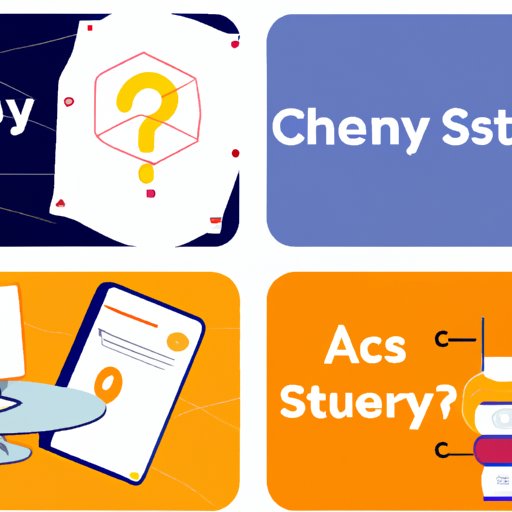Introduction
Studying science can be challenging. With so much material to learn and understand, it’s important to have an effective strategy for approaching science topics. In this article, we will provide tips and strategies to help you study science more effectively.
Utilize study tools such as flashcards and diagrams
One great way to help you learn and retain science concepts is to make use of helpful study tools such as flashcards and diagrams. Flashcards are an especially useful tool because they allow you to quickly test yourself on key terms and definitions. According to research published in the journal Memory & Cognition, “flashcard learning was found to be superior to other forms of learning in terms of recall accuracy and speed.”
In addition to flashcards, diagrams are also a great way to help visualize and better understand scientific concepts. Diagrams can be used to illustrate the structure of molecules or the flow of energy through an ecosystem, for example. By breaking down complex information into visual representations, diagrams can help clarify difficult concepts and make them easier to remember.

Take practice tests or quizzes
Another helpful tip for studying science is to take practice tests or quizzes. Taking practice tests allows you to assess your understanding of the material and identify any areas that need additional review. According to research published in Educational Psychology Review, “practice testing can improve long-term retention, and that improvement is greatest when the practice tests are spaced over time.”
There are many sources available for finding practice tests and quizzes. Your teacher or professor may provide sample tests or quizzes, or you can find practice materials online. For example, Khan Academy offers practice tests and quizzes for a variety of science topics.

Create a study plan and stick to it
Creating a study plan and sticking to it is an essential part of effective studying. A study plan should include specific goals for what you want to accomplish and when, as well as how much time you intend to set aside for studying each day. It is important to be realistic about how much you can accomplish in a given amount of time and to create achievable goals.
Once you have created your study plan, it is important to actually follow through with it. Setting aside regular times for studying each day helps ensure that you stay on track and don’t fall behind. This can be especially helpful if you are taking multiple science classes at once.
Ask questions in class and attend office hours if available
Asking questions in class can be a great way to get clarification on difficult topics and to ensure that you fully understand the material. According to research published in the journal Teaching in Higher Education, “asking questions is a powerful tool for learning, as it is one of the most common ways by which students engage with the material and develop their understanding.”
If your teacher or professor offers office hours, it can be beneficial to take advantage of these. Office hours provide an opportunity for you to ask questions in a one-on-one setting, which can be especially helpful if you are struggling with a particular concept.

Make use of online resources
Finally, online resources can be a great way to supplement your studies. Websites such as Khan Academy and Crash Course Science offer free resources for learning science topics. These websites feature videos, practice exercises, and other interactive materials to help you understand science concepts.
Online resources can also be helpful for getting extra help if you are having difficulty with a particular topic. Many websites offer forums or discussion boards where you can post questions and get answers from experienced science tutors.
Conclusion
Studying science effectively requires a strategic approach. Utilizing study tools such as flashcards and diagrams, taking practice tests and quizzes, creating a study plan, and asking questions in class can all help you better understand and retain science concepts. Additionally, making use of online resources can be a great way to supplement your studies. With these tips and strategies, you can feel confident that you are taking the right steps to succeed in your science classes.
(Note: Is this article not meeting your expectations? Do you have knowledge or insights to share? Unlock new opportunities and expand your reach by joining our authors team. Click Registration to join us and share your expertise with our readers.)
